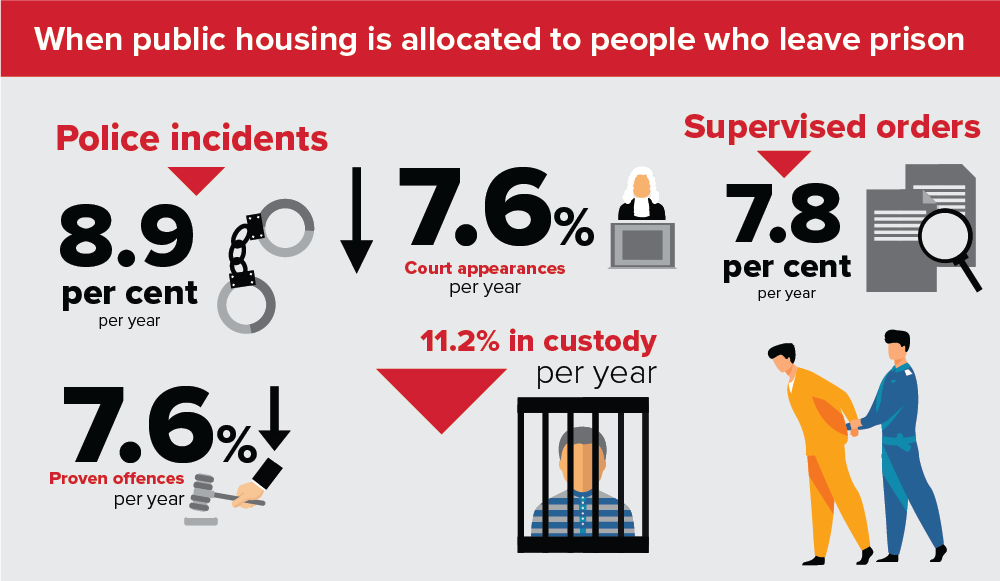
Housing ex-prisoners reduces interactions with justice system and saves money: report
Housing pathways of ex-prisoners
09 Sep 2021
Ex-prisoners with complex support needs who receive public housing have better criminal justice outcomes than comparable ex-prisoners who receive private rental assistance only, new AHURI research has revealed.
‘When housing costs are taken into consideration, public housing generates a net benefit of $5,200 to $35,000 per person over five years, relative to the cost of providing assistance to an ex- prisoner in private rental or through homelessness services,’ says lead researcher Dr Chris Martin from UNSW Sydney.
The research, ‘Exiting prison with complex support needs: the role of housing assistance’, undertaken for AHURI by researchers from the UNSW Sydney, University of Tasmania and RMIT University, examines the housing pathways of ex-prisoners with complex support needs.
The research finds that more than half of ex-prisoners across Australia are released from prison into forms of homelessness or precarious housing, and yet if they are able to get into social housing, costs associated with their interactions with the justice system reduce by $4,996 in the first year, and then by $2,040 each year after that.
‘When housing costs are taken into consideration, public housing generates a net benefit of $5,200 to $35,000 per person over five years, relative to the cost of providing assistance to an ex- prisoner in private rental or through homelessness services,’ says lead researcher Dr Chris Martin from UNSW Sydney.
‘We also found that this provision of public housing ‘flattens the curve’ of average predicted police incidents (down 8.9% per year), time in custody (down 11.2% per year), proven offences (down 7.6% per year) and court appearances (down 7.6%),’ says Dr Martin.
The research shows ex-prisoners face a fraught pathway through various forms of temporary accommodation—motels, caravan parks, SHS facilities and boarding houses—with only a few also accessing transitional accommodation specifically for ex-prisoners.
There were approximately 65,000 releases from prison in 2019. That year, about 9,100 adults exiting custody requested assistance from a specialist homelessness service (SHS).
‘Ex-prisoners have been the fastest growing client category for specialist homelessness services over the past decade, increasing 67 per cent over the eight years 2011–12 to 2018–19,’ says Dr Martin. ‘As a consequence, they make up about 4.6 per cent of all adults seeking SHS assistance over that time.’
Interviews undertaken with support workers for the research indicate that supportive social housing could change a client’s future, providing affordability, security (safety and permanence), and space for engagement with support.
However, the average time from first exiting prison to getting into public housing is five years. If public housing was able to be received earlier, the benefits to the individual and society would be expected to occur sooner and therefore be even greater.
‘Ex-prisoners have been the fastest growing client category for specialist homelessness services over the past decade, increasing 67 per cent over the eight years 2011–12 to 2018–19,’ says Dr Martin. ‘As a consequence, they make up about 4.6 per cent of all adults seeking SHS assistance over that time.’

